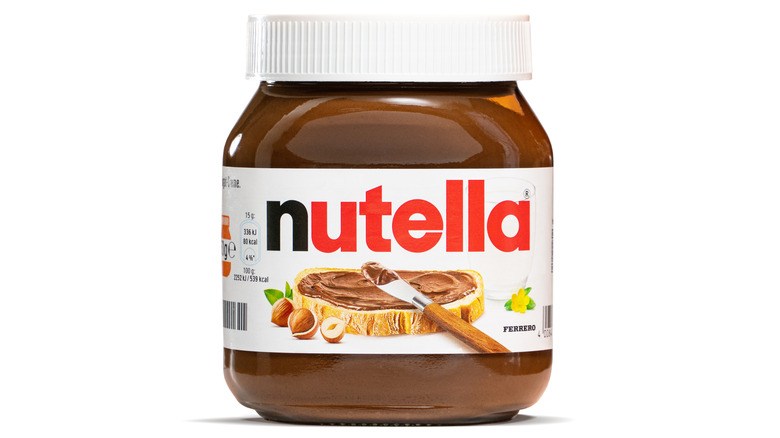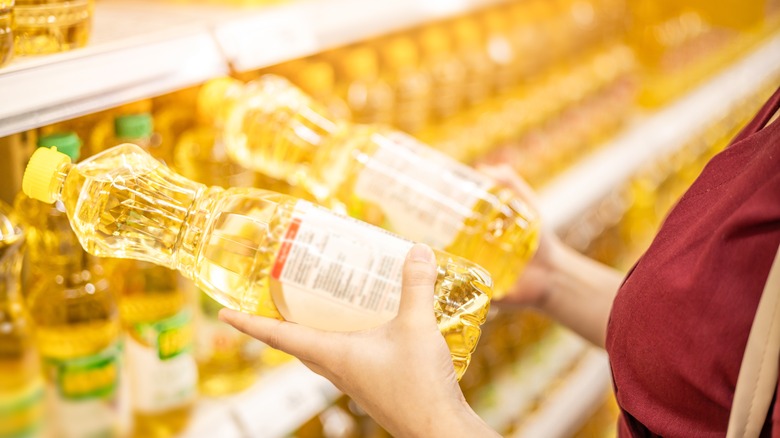What Indonesia's Palm Oil Ban Means For Oreo And Nutella
Recently, TikTok wasn't happy with how Nutella is made. The dominant theme of their complaint was that Nutella used both palm oil and excessive amounts of sugar (via TikTok). With Indonesia's recent ban on exporting palm oil, however, one may hope that Ferrero finds using the ingredient too expensive to continue.
CNN reported on Tuesday that with the exception of crude palm oil, restrictions would be put in place to stop companies from selling to foreign buyers palm oil and the ingredients that go into making it. The reason for doing so is that the COVID-19 pandemic and invasion of Ukraine had already made the cooking oil too expensive for Indonesians to buy, even though the country produces over half of the world's palm oil supply. The government tried capping its price at first but has now introduced the ban as a final resort.
With half of the total supply of palm oil gone, companies will now scramble. Fortune estimates that Ferrero, Unilever, and Nestlé annually use hundreds of thousands of tons of palm oil in the production of their foods. So, they will have to pay more to source their oil, which means that consumers will probably have to pay more as companies are unlikely to shoulder the cost entirely.
The reason why food companies love palm oil even though TikTok users despise it is that it has neither taste nor odor. Imagine, for example, if your Oreos tasted like olive oil. Now, you should expect to pay more when purchasing Oreos and Nutella.
What does Ukraine have to do with it?
Even though 2021 was the year of people shaking their heads over the global supply chain, it could still surprise some that the War on Ukraine will affect the palm oil supply coming from Indonesia.
The Associated Press explains that Ukraine supplies 25% of the world's sunflower oil, a massive segment of an industry already suffering due to the coronavirus pandemic (via NPR). However, if people can't get sunflower oil, they will look elsewhere. Folks turned to palm oil as an alternative, raising its price by 200%. James Fry, chairman of consultancy firm LMC International, told CNN that the world needs Indonesia's palm oil production to serve as a relief for the unsatisfied demand for sunflower oil.
But, as mentioned, the skyrocketing price made itself felt in Indonesia. "The producers tend to export owing to the high prices overseas," President Joko Widodo said after the government both imposed a domestic price cap on palm oil and had begun to hand out cash subsidies so that citizens could purchase it (via Antara News). Neither measure reined in palm oil prices, so the ban was enacted. So, the price for cooking oils and the foods that use the oils as an ingredient will continue to rise in tandem with the rest of the grocery bill.

